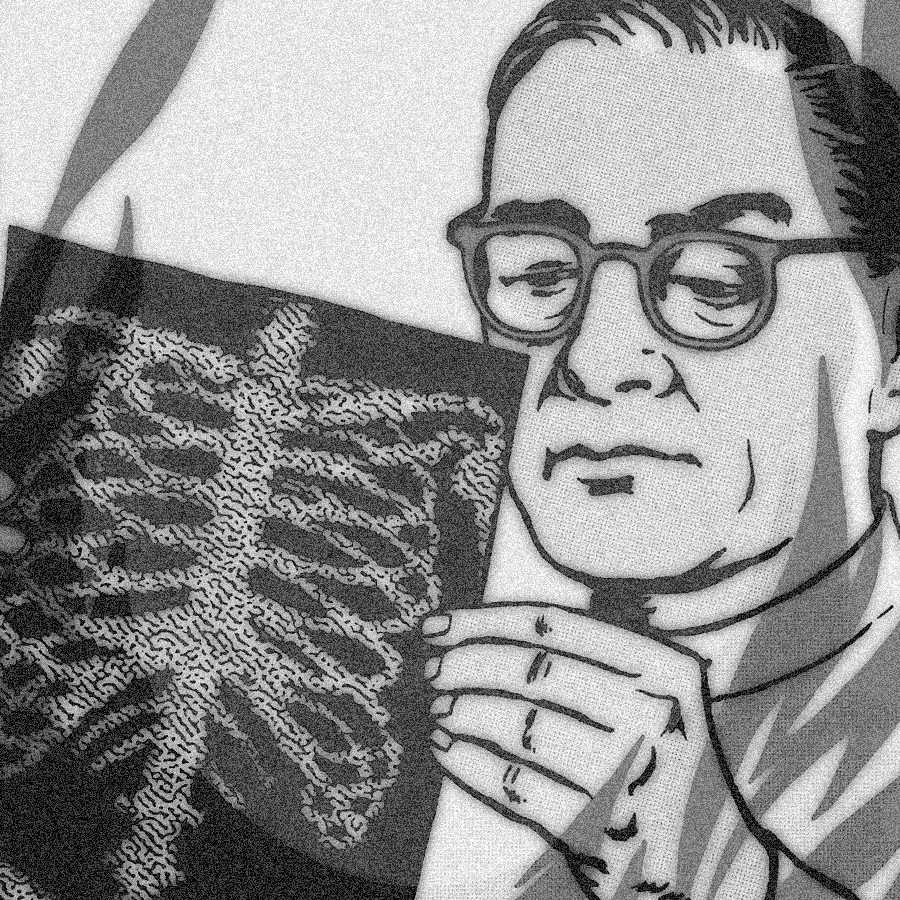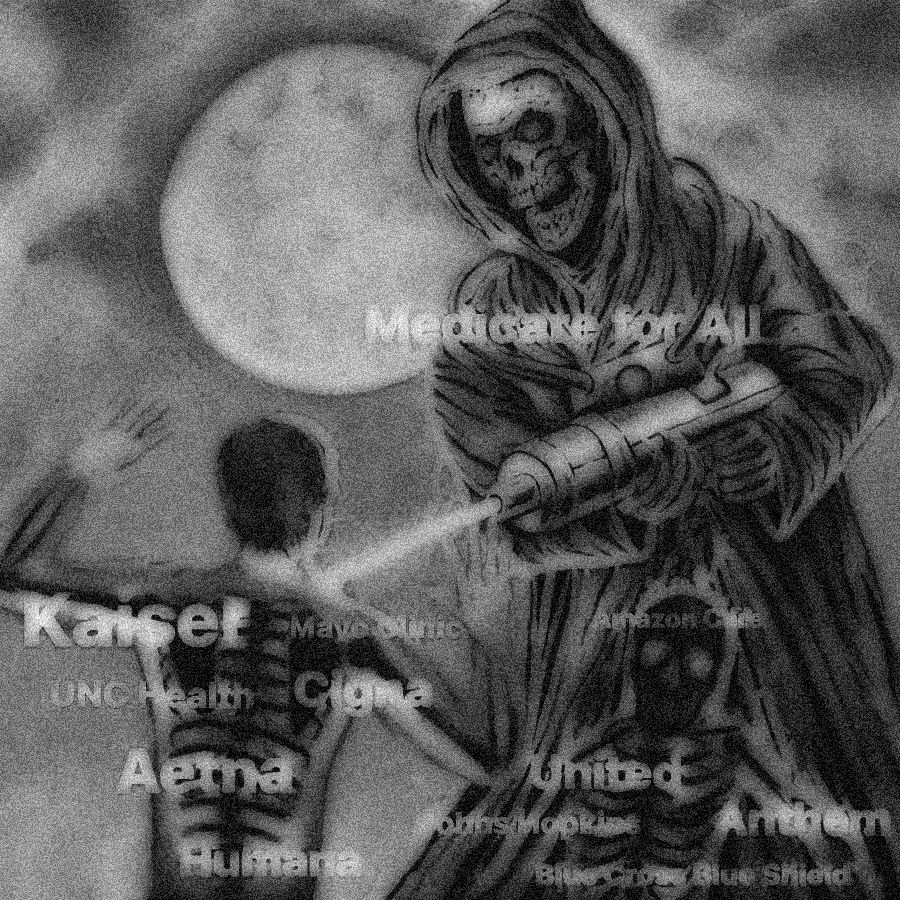Writing
-

Health Communism: A Surplus Manifesto (Verso)
Co-authored with Artie Vierkant. Forthcoming October 2022 from Verso Books.
-

We Haven’t ‘Learned the Lessons of COVID’ Until We Remake the Political Economy of Health
Co-authored with Artie Vierkant. Over the course of the pandemic it has been popular to claim that we have “learned lessons from COVID,” as though this plague has spurred a revolution in how we treat illness, debility, and death under capitalism. Part of the Petrie Flom Center Symposium on Health Law and Policy in an Era of Mass Suffering.
-

"Imagine What We'll Build for One Another": an Interview with Jules Gill-Peterson (The New Inquiry)
Health justice scholar Beatrice Adler-Bolton speaks with historian Jules Gill-Peterson about anti-trans policy, eugenics, and the material stakes of desire. Read here.
-

Mask Off (The New Inquiry)
The debate about mask mandates is actually a debate about the human, social and economic rights of everyone, not just the medically vulnerable. It is a conversation about the value that our society wishes to place in protecting each other from sickness, about the value of recognizing or rejecting our interdependence, and about the worth of the people whose suffering may soon be minimized as “deaths pulled from the future” or merely the “cost” of reopening. Read here.
-

“The Beyblade Strategy” or: How We Learned to Stop Worrying and Love Focused Protection (The New Inquiry)
Co-authored with Artie Vierkant. Years of optimistic predictions, emphasis on personal responsibility, and reductive assumptions about individual risk have calcified into a set of positions now held by many of the most prominent voices on COVID. But the talking points hawked by “respectable” pundits are largely indistinguishable from the worst views held by COVID deniers, minimizers, and cranks. Read here.
-

Deaths Pulled From the Future: A brief argument for still giving a fuck about the pandemic (Blind Archive)
Our inability to mitigate COVID is not simply an issue of ‘politics’ in public health, vaccine hesitancy, and pandemic fatigue—it is also income inequality, incarceration, racism, ableism, generations of hoarded wealth, monopolistic corporations, and many other forces which drive the failure and death we have been living with since March 2020. Read here.
-

On Marta Russell's 'Money Model of Disability' (Blind Archive)
A Marxist approach to impairment, disablement, and chronic illness under capitalism. The money model is an important and understudied model of disability alike in use, but quite distinct in politics from the other more widely-known and used models of disability. Read here.
-

Pfizer Walk With Me (The New Inquiry)
Co-authored with Artie Vierkant. As COVID continues, pharmaceutical companies increasingly assume forms of public statecraft. Rather than working to undo the harms of a vastly inequitable international vaccine rollout, the U.S. may instead use this opportunity to cement the significant advances pharmaceutical capital has managed over the last year. Read here.
-

#FreeBritney and #FreeThemAll (Mental Hellth by P.E. Moskowitz)
We can't view Britney as an anomaly; the mental health system is designed to chemically and physically incarcerate people. An argument for abolition and disability justice. Read here.
-

The Vengeful Specter of Cuts to Medicare Advantage (Blind Archive)
Medicare Advantage is a fundamentally corrupt, parasitic institution. We must fully abolish the industry of private health insurance—severing the parasite from its host. Read here.
-

Fighting for Disability Benefits (Sick Note by Libby Watson)
It’s a story of complicated administrative tasks, denials, barriers, and plain old cruelty to help understand just what we make disabled people go through to receive barer-than-the-bare-minimum help. Read here.
-

Psychiatric Imaginary (Blind Archive)
This essay examines the concept of sanism through the lens of what Liat Ben-Moshe calls “carceral sanism” and questions how the concept of danger and safety are employed in the cultural imaginary to conjure up ideas about madness. Read here.
-

Welfare Capo (The New Inquiry)
The Sopranos is about not a crisis of masculinity but a crisis of capitalism. This classic early-prestige drama is actually about a one-man welfare state. Read here.
-

“Right to Try” Is a Cruel Farce (Jacobin)
Drug companies want you to think they're providing glimmers of hope to terminally ill patients. Don't believe them. Read here.
-

Corpo-Normalization of Hospitals Without Walls (Blind Archive)
Health finance issues are always labor issues, and what might seem at face to be harmless lobbying for simple rule changes at CMS can have catastrophic consequences for both workers and patients. Read here.
-

Bernie Sanders Is the Disability Rights Candidate (Jacobin)
It’s clear from his platform that Bernie Sanders understands that people with disabilities are confronted with daily acts of discrimination and oppression in the United States. A Sanders presidency would offer an unprecedented chance to improve the lives of disabled people across the country. Read here.
-

Pierre Cardin: HEALTH (Blind Archive)
The first in a three part series; discussing the ways in which aesthetics and fashion are used to control — to create borders between the “we” and “not we” — to mark who is important to capital and who is not. Read here.
-

Pierre Cardin: TASTE (Blind Archive)
Second in a three part series; the classically convention-breaking Cardin silhouette is a perfectionist fantasy which raises larger questions about fashion’s ability to reproduce a powerful kind of social and physical discomfort. Read here.
-

Pierre Cardin: MAN (Blind Archive)
Beyond his interventions in womenswear, which were numerous, Pierre Cardin is widely credited with “inventing” the contemporary menswear market, or la mode masculine, and also with developing, designing, marketing, and selling some of the first “unisex” luxury fashions starting with his groundbreaking Cosmocorps collection. Read here.
Symposia: Capitalism & Disability (Law & Political Economy Blog, October 2022)
The modern disability rights movement has been primarily oriented around seeking labor inclusion through the expansion of civil rights statutes. Despite this, few disability theorists have approached the study of disability from an explicitly political economic perspective. Marta Russell, the author of several groundbreaking but lesser-known works on disability and capitalism, is one of the rare exceptions. This symposium celebrates her work and encourages the rediscovery of the political economy of disability.
Featuring essays by: Beatrice Adler-Bolton and Artie Vierkant, Karen Tani, Ruth Colker, Nate Holdren, Jules Gill-Peterson, and a round-table with Liat Ben-Moshe and Dean Spade.
-

Capitalism & Disability: A Symposium on the Work of Marta Russell
by Beatrice Adler-Bolton & Artie Vierkant
This post introduces a symposium on Marta Russell and the Political Economy of Disability. Marta Russell proposes a theory of disability that rejects arguments about culture and identity, instead charging that specific systems and values embedded within capitalism are the primary driver of (and justification for) legal frameworks sanctioning the institutionalization and economic exclusion of disabled people.
-

Capitalism & Disability As Research Agenda
by Karen Tani
The late Marta Russell is not a well-known figure among legal scholars and practitioners. She should be. Running throughout her writings is a powerful thesis: in many respects, law works to enable profit-seeking, and disability, as a concept, is crucial to that work.
-

Moral Equality, Marxism, and Outraged Empathy
by Nate Holdren
In her earlier work, Marta Russell called readers attention to the economy as a factor producing disablement and argued that we needed to re-embed the market in society, to tame businesses’ need to profit via the social policies of an interventionist state. By the end of her career, however, Russell had gone further, focusing on capitalism itself. Her solution expressed not a Polanyian ideal of a somewhat more egalitarian capitalism, but a Marxist aspiration to a vastly better and more egalitarian society, achievable only by ending capitalism through collective action.
-

The Reactive Model of Reasonable Accommodation
by Ruth Colker
The concept of reasonable accommodations at the heart of the ADA severely undercuts the efficacy of the law. Employers, public entities, and private businesses are allowed to ignore the inaccessible nature of their programs or activities until an individual with a disability seeks (or begs) for access. This reactive, individualized model does little to prevent mass-produced inaccessibility.
-

FORTHCOMING 10/17
by Jules Gill-Peterson
-

FORTHCOMING 10/18
round-table with Liat Ben-Moshe and Dean Spade